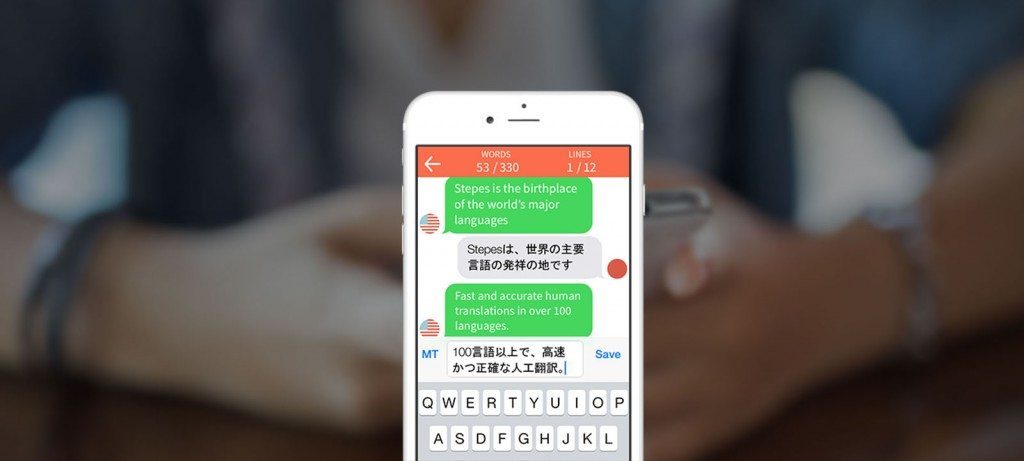January 5, 2015
First it was Uber, then Airbnb. Now, the sharing economy has moved to translation. Stepes, a language technology start-up, has just filed patents in the United States and China for its mobile translation technology. The technology would allow translators around the world to work on translation projects directly from their smartphones.
Previously, translation tools were desktop-based. With Stepes, translators can now earn money for work they can do while commuting or waiting in line.
The mobile app works like this. First, a large translation project gets divided up into smaller components and given to individual translators. Companies can view the profiles and selected translation samples of all Stepes’ translators, who come from a worldwide pool of 50,000+ translators assembled by Stepes’ partner site: TermWiki.com.The Stepes team had to drastically rethink the translation interface for its mobile app. Rather than presenting the entire chunk of text at once to be translated, Stepes feeds a text to translators line by line, which the translator then sends back translated before receiving the next line. The entire exchange looks exactly like a texting conversation between Stepes and the translator. Such a format allows translators to easily thumb back translations and work on projects incrementally on a small screen.
“The idea came to me after seeing construction workers hoisting pieces of building materials to assemble a tall skyscraper outside of my office,” admitted Carl Yao, the pioneer behind Stepes. “We needed some way to make translation easy on a mobile screen, and I thought, why not make it a texting conversation?”
Stepes – and the emergence of various online human translation services – represents a shift in strategy among businesses. Spurred on by globalization and slower domestic consumer spending, companies and firms have sought to expand their global market shares. Going global however, requires translating all their products and interfaces into tens of different languages simultaneously. Nowhere is this trend stronger than in China, where the government has been encouraging companies to “go out” and globalize through supportive policies and subsidies.
“I see Stepes and the online translation industry in general becoming a massive area of growth as more and more companies require high-quality human translations of highly technical material at faster speeds. Stepes is just the first step in this development,“ said Yao.
Click here to read the full article.
About CSOFT Health Sciences
CSOFT Health Sciences, leaders in clinical trial localization, provides AI/ML-enabled medical translation services for all phases of the drug and medical device product lifecycle, from development to post-launch. We also specialize in DCT solutions, linguistic validation, and CTD/eCTD submissions with the FDA, EMA, and NMPA. Our operations are certified in ISO 17100:2015, ISO 9001:2015, and ISO 13485:2016, ensuring our customized solutions meet the rigorous regulatory requirements of MMA, NDA, CTA, and Medical Device Application submissions. www.csoftintl.com
About CSOFT Health Sciences
CSOFT Health Sciences, leaders in clinical trial localization, provides AI/ML-enabled medical translation services for all phases of the drug and medical device product lifecycle, from development to post-launch. We also specialize in DCT solutions, linguistic validation, and CTD/eCTD submissions with the FDA, EMA, and NMPA. Our operations are certified in ISO 17100:2015, ISO 9001:2015, and ISO 13485:2016, ensuring our customized solutions meet the rigorous regulatory requirements of MMA, NDA, CTA, and Medical Device Application submissions. www.csoftintl.com


